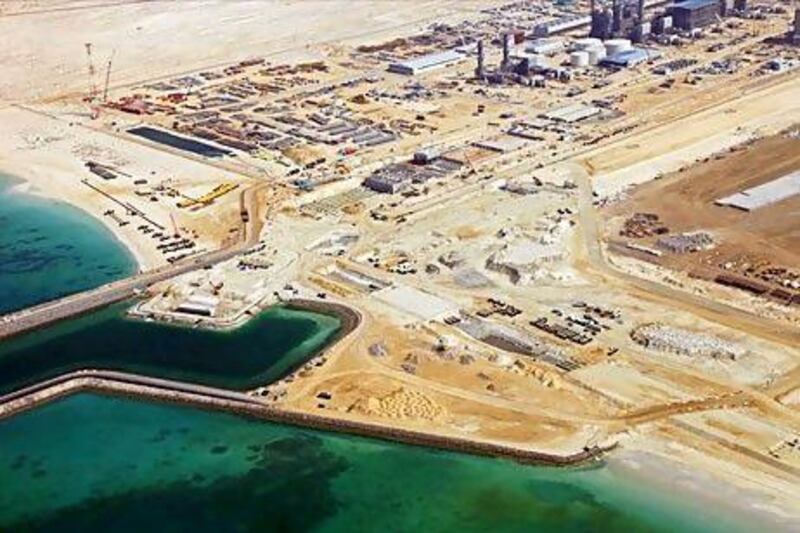A surge in business activity last month in the UAE pushed company output and growth to a four-month high.
Tomorrow's exclusives tonight:
Industry Insights e-newsletter Stay ahead of the pack and get the pick of the premium Business content straight to your inbox. Sign up
The latest Purchasing Managers' Index (PMI) climbed to 53.8 last month as output increased and more new orders were registered among businesses, according to a report by HSBC and Markit Economics, which compile the index together.
That figure is up from 52.6 in September, when business activity first started to accelerate after a slowdown that had lasted four consecutive months.
"We continue to see a display of steady growth in confidence from talking to our customers, from new economic indices … and through business confidence surveys," said Simon Vaughan Johnson, the head of commercial banking at HSBC Middle East and North Africa.
"Many companies have worked very hard to address the challenges of the economic downturn, and we believe that these efforts are now beginning to pay off, giving rise to a growing confidence," Mr Johnson said.
The monthly data provides a snapshot of the UAE's performance in the non-oil part of the private sector. Dubai has the largest non-oil economy in the UAE, and building up this sector continues to be an area of focus in Abu Dhabi, as the emirate seeks to diversify away from a heavy dependence on crude exports.
Last month, Abu Dhabi officials met with leaders and decision makers in India to highlight investment opportunities in the Khalifa Industrial Zone Abu Dhabi (Kizad), which is expected to be one of the largest industrial zones in the world when it has been completed.
Other Gulf economies have also experienced a recent increase in business activity.
In Saudi Arabia, business activity climbed from 58.4 in September to 59.9 last month on the PMI.
Combined growth in the UAE and Saudi Arabia "clearly show continued economic growth in the Middle East", the HSBC report said.
Qatar led the Gulf in overall business confidence, which is tracked on a separate index that is also compiled by HSBC.
The latest results on this measure for the broader Gulf region show investment budgets were up in the third quarter, while expectations for business turnover and profits remained steady. This suggests businesses "are feeling more secure after a period of steady recovery", the report said.
Companies in the Gulf also remain confident about revenue growth, as well as the health of profit margins, and their ability to meet quarterly budgets and annual targets, the report said.
Employers in the Gulf are generally positive about the hiring trend for the final quarter of the year, with 42 per cent saying they intend to boost employee numbers, up from 39 per cent in the last quarter.
The proportion of companies that expect to lay off workers dropped from 13 per cent to 11 per cent.
twitter: Follow and share our breaking business news. Follow us





